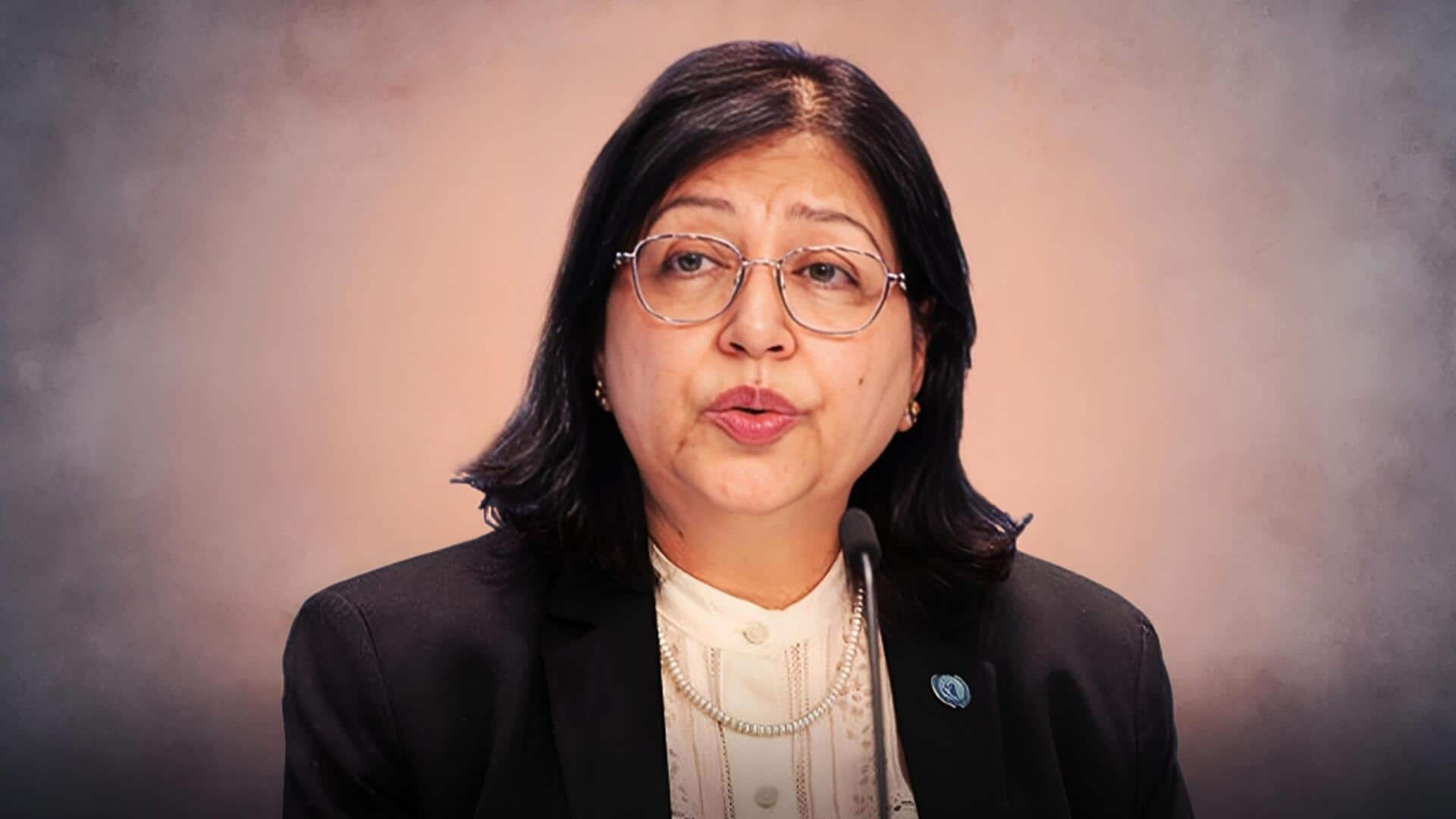
Jagjit Pavadia re-elected to global narcotics watchdog, who is she?
What's the story
Former Indian Revenue Service (IRS) officer Jagjit Pavadia was re-elected to the International Narcotics Control Board (INCB) for the term 2025-2030 on Tuesday. The election process was conducted by the United Nations Economic and Social Council (ECOSOC), with India receiving 41 votes out of the 53 voting members of the ECOSOC. The announcement was made by India's External Affairs Minister S Jaishankar. Here's what we know about Pavadia.
Twitter Post
Check out Jaishankar's tweet
Today, India’s nominee Ms Jagjit Pavadia has been re-elected to the International Narcotics
—Control Board at elections held in New York, for the term2025-2030. votes amongst all elected members
India secured the highest number ofstates to the Board.
Good work…Dr. S. Jaishankar (Modi Ka Parivar) (@DrSJaishankar) April 9, 2024
Career overview
Pavadia's extensive career in Indian Revenue Service
Born in 1954, Pavadia has an impressive career spanning over three decades with the IRS under the Government of India. Her portfolio includes prestigious roles such as Narcotics Commissioner of India at the Central Bureau of Narcotics (2006-2012), Commissioner of Legal Affairs (2001-2005), and Chief Vigilance Officer at the Power Finance Corporation (1996-2001). Pavadia has been a member of the INCB since 2015.
INCB experience
Pavadia's previous tenure at INCB
In May 2019, she was re-elected by the council to a five-year term from 2020 to 2025. In addition to being an INCB member, she has served as Second Vice President and Chair (2015, 2017, and 2020), Vice Chair (2018), and member (2019 and 2023) of the Standing Committee on Estimates. She was appointed First Vice President of the board in 2016 and president from 2021 to 2022.
INCB structure
Overview of the INCB
The INCB was established in 1968 as an autonomous and quasi-judicial body responsible for overseeing the implementation of UN international drug control conventions. The board comprises 13 members elected by ECOSOC, serving in their individual capacity, not as representatives of their respective governments. Three members are chosen for their medical, pharmacological, or pharmaceutical expertise from a list of nominees by the World Health Organization (WHO). The remaining 10 are selected from a list of nominees put forth by different governments.